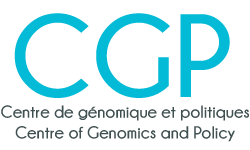Profil
Ellen Wright Clayton
Ellen Wright Clayton, J.D., M.D., est une leader internationalement reconnue et une conférencière très sollicitée, qui se consacre à la protection des intérêts des patients, des familles et des communautés, en particulier lorsqu'ils sont affectés par la conduite de la recherche en génomique et en intelligence artificielle et leur application aux soins cliniques, ainsi que par des facteurs sociaux et juridiques plus larges qui touchent les femmes et les minorités.
Participant activement aux débats politiques, le professeur Clayton a conseillé les National Institutes of Health et d'autres organismes fédéraux et internationaux sur un large éventail de sujets, allant de la santé des femmes et des enfants à la conduite éthique de la recherche impliquant des sujets humains. Clayton a travaillé sur de nombreux projets pour la National Academy of Medicine, notamment en tant que membre de son conseil consultatif et présidente du conseil d'administration sur la santé de la population et les pratiques de santé publique. Pour les Académies nationales des sciences, de l'ingénierie et de la médecine, elle a occupé pendant sept ans le poste de coprésidente du comité d'examen des rapports et est actuellement membre fondatrice du comité permanent sur la santé reproductive, l'équité et la société, qui traite d'une multitude de questions post-Dobbs, et membre du comité sur la science, la technologie et le droit. Elle est membre élue de l'Académie nationale de médecine, de l'American Pediatric Society et membre de l'American Association for the Advancement of Science et de l'American College of Medical Informatics.
She is currently co-principal investigator of a transdisciplinary Center for Excellence in Ethical, Legal and Social Implications Research study addressing genomic privacy and co-investigator of two grants addressing ethical and legal issues raised by new developments in artificial intelligence and machine learning in health care. She recently completed another study analyzing legal issues in liability, quality, privacy, and access, and the clinical-research interface, all with the goal of developing more effective solutions. She has published two books and more than 300 scholarly articles and chapters in medical journals, interdisciplinary journals, and law journals on the intersection of law, medicine, and public health. She has also collaborated with faculty and students throughout Vanderbilt and in many institutions around the country and the world on interdisciplinary research projects and helped to develop policy statements for numerous national and international organizations. Her teaching interests include law and genomics, bioethics and law, reproductive rights, and public health and research ethics.

